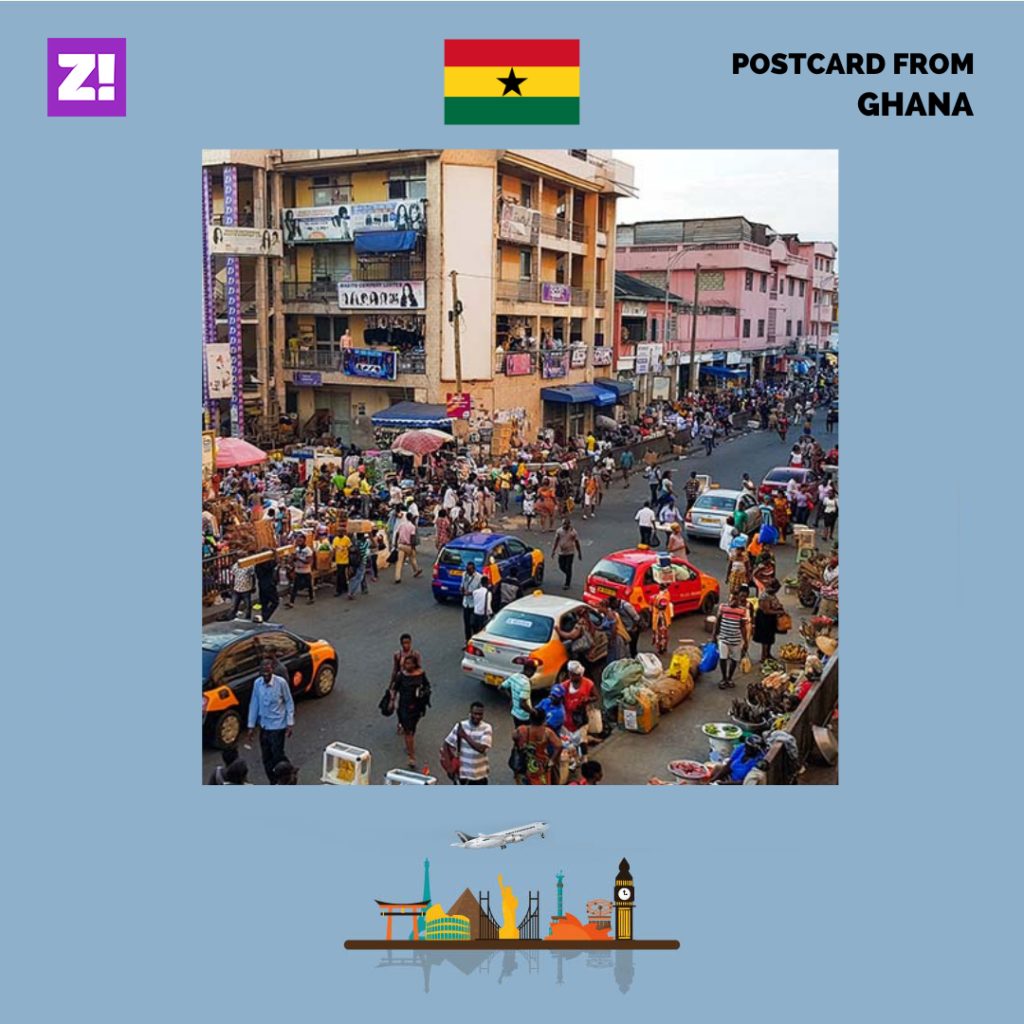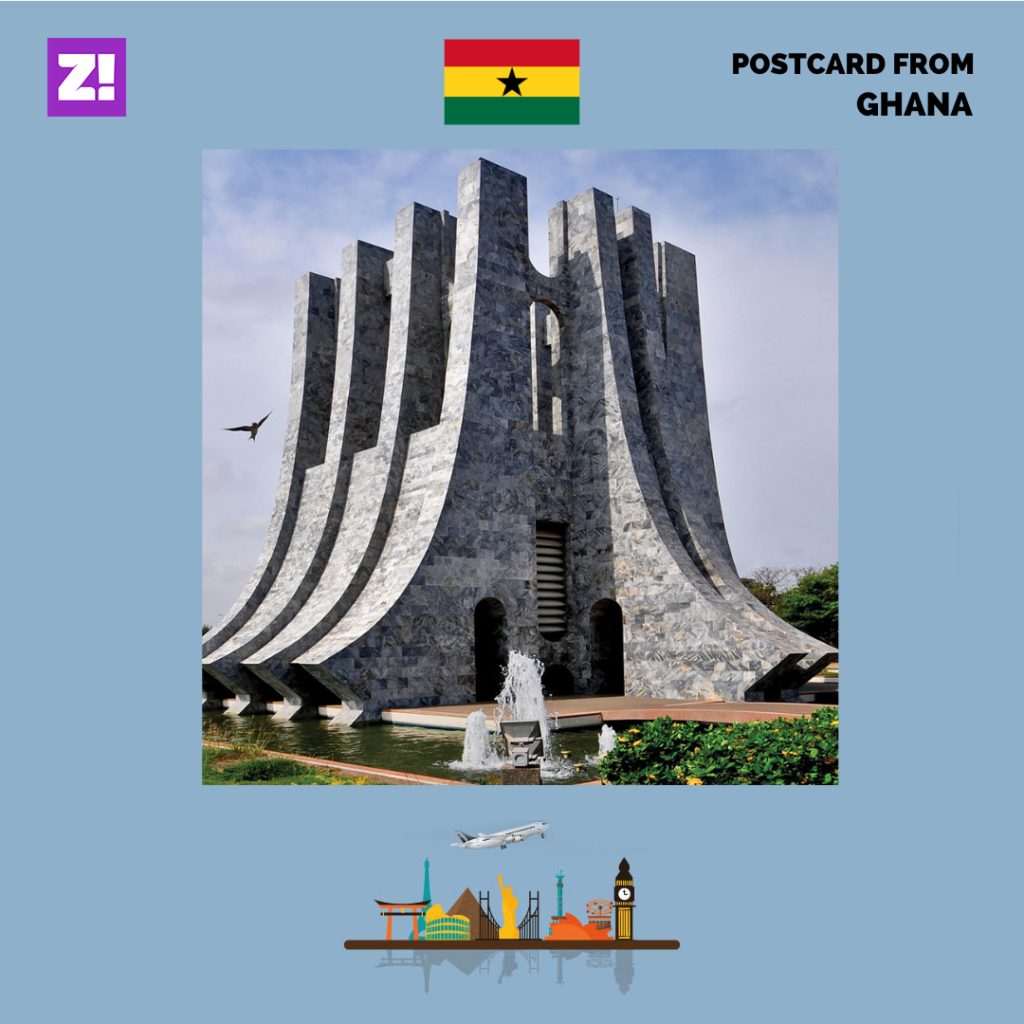The Nigerian experience is physical, emotional, and sometimes international. No one knows it better than our features on #TheAbroadLife, a series where we detail and explore Nigerian experiences while living abroad.
Today’s subject on Abroad Life has lived in Ghana for the past five years. He talks about his initial hesitation to move, perceptions Ghanaians have of Nigerians, Ghanaian women and Ghanaian jollof.
So how long have you been in Ghana?
I’ve been here for about five years. I came here for school, and I’m in my final year now.
Why did you choose Ghana?
The University of Ghana is considered the best in West Africa, so when I finished secondary school, my parents told me to go there. I remember they used the word “Prestigious” a lot as they tried to convince me. But I didn’t really know anything about the school, so I did some research.
What did you find?
All the stuff I saw online pointed to the fact that it was a good school. They even had detailed information for international students, but the Nigerian in me was still not sure I wanted to go there. I mean, I grew up in Nigeria and all my friends were there. Why would I want to go to Ghana?
What was the process of getting an admission like?
It was pretty easy. I used my WAEC. Some people use A-Levels, but it’s much easier to use WAEC. It’s the same way you’d apply to go to a Nigerian university, the only difference is that the cut off mark is higher for non-Ghanaians. Thankfully, that wasn’t a problem for me.

So what was your first time in Ghana like?
About two months before I had to resume school, my entire family decided to take a trip to Accra to see the school and the environs. We stayed there for about a week, then went back to Nigeria. When it was time to resume, I came on my own. Settling down and doing all my registration was really stressful. It was probably worse for me because I’m an international student and I had to do some extra stuff.
What’s one thing that shocked you about Ghana?
There are a few things. First, the language. You know how in Nigeria, there are three major languages, but everyone just has to know either English or pidgin to get by? It’s not like that here. There’s one major language and then the other languages are fringe languages. This means that a lot of people speak the major language and in turn, don’t speak English really well. Don’t get me wrong, the majority speak English well. But coming from Lagos where everyone spoke either English or pidgin fluently enough to communicate, it was strange to get here and see so many people struggling with English. The average person in Accra does not speak English as well as the average person in Lagos.
That’s interesting…
Ghanaians also strongly believe that their accents and pronunciations are superior, so I always get corrected when I pronounce something the Nigerian way. It’s hilarious.
Another thing I found strange is that many Ghanaians I interacted with automatically assume every Nigerian is a fraudster. When they see Nigerians, they see fraud. I noticed it in my first year because I would hear whispers, but I thought it was just a funny stereotype until one guy asked me to teach him how to do fraud. I was so offended. I told him I’d never done fraud in my life and asked why he would even consider asking me that His reply: “Stop lying. Are you not a Nigerian?”
Wow.
There are a lot of funny things that some Ghanaians believe about Nigerians. For example, many Ghanaians believe that the average Nigerian is a great entertainer. Like, we can sing and dance. I think it’s because we have many great musicians, but it’s just funny to me that they would assume it’s all of us that can sing and dance. People always ask me if I can do either, and when I ask why, it’s the same reason: “Because you’re Nigerian.”
Haha…
One last thing — they consider Nigerians to be very loud people. Okay, yes, we’re loud, but I’m a very quiet person, so whenever someone meets me for the first time and finds out I’m Nigerian, they get shocked and say something like, “You’re Nigerian? But you’re very quiet!”
You’re killing me… How then do you socialise?
When I first got here, I was in the hostel for international students, so I naturally spent more time with Nigerians and people from other nationalities. In my second year, I moved hostels and started mixing with Ghanaians. It was nice. They’re more accommodating than Nigerians. I would say the only thing that challenged me was the pidgin. Ghanian pidgin is quite different from Nigerian pidgin.
And then Ghanaian babes…
Tell me about them.
Ghanaian babes are super friendly. At first, it was strange to me that women were this nice in real life because most of the Nigerian babes I know will just give you attitude for nothing. I think the thing with Nigerian babes is that they think everyone is trying to hit on them, so they just put up a shield wall. It’s annoying, I won’t lie. But even if Ghanaian girls don’t like you, they’re still polite and will speak to you like a normal human being.
You’ve dated a Ghanaian woman?
Yes, but not until after a few years here. Because they’re nice people, I started feeling like the women I was hanging out with were not “honest” with their feelings. It’s like, “I know you want to be nice to me and all, but please it’s not like I’m perfect. Be real with me and tell me when I mess up. Be comfortable around me.” It took me a while before I found someone like that, but I did, and we dated. It was good, but Coronavirus came. Lockdown and distance were tough, so we ended things.
In the end though, I would rather be with a Ghanaian woman than a Nigerian one. I don’t think they’re as entitled as some Nigerian women can be. Nigerian women need to learn from Ghanaian women.

Are you coming back to Nigeria any time soon?
I’ll be honest, I’m now very used to life here and I’m enjoying it. It’s calm and there are job opportunities especially for people in tech. So I’ll probably stay.
Do you miss anything about living in Nigeria?
The food. The food and the people. Nigerians are generally livelier, but there are already a lot of Nigerians living here, so the people part is sorted. Nigerian restaurants are also springing up fast. So, basically the part of Nigeria that I love, I already have it here.
I’m curious, has “Ghana must go” ever come up in any of your conversations?
Hahaha, yes. There was a time I wanted to come back to Nigeria for the holidays and my bag cut, so I needed an emergency bag. I walked into a store and as I was telling the guy what I wanted to buy, I had to stop mid-sentence to re-evaluate what I was about to say. I later found out that they call it “Jute bag”, but they never take offence when anyone calls it Ghana must go. They’ll even laugh. But at that point, they already know you’re a foreigner.

Omo, Ghanaians seem like really chill people.
Most of them are. Of course, there are the people that don’t like Nigerians because they think we’re here to scam them, take their jobs and marry their women. They’re a small group, but they air their opinions with their chest. They won’t get violent or anything, but they’ll speak their minds. I got a lot of hate in school because, as a tall guy, I naturally attracted women and guys thought I was here to steal their babes. It was weird. Also, a lot of people say that Ghanaian women prefer Nigerian men because we dress better, have more game and are more confident. There might be some truth to it.
Final question, Ghanaian jollof or Nigerian jollof?
If someone says they prefer Ghanaian jollof, it means they’ve not tasted Nigerian jollof. Ghanaian jollof is tasteless until you add shito, and even then it doesn’t taste as good as Nigerian jollof. But what’s the point of calling something jollof if you’re even going to add stew on top.
The first time I had Ghanaian jollof, I was at a restaurant with my friend. When I saw and tasted it, I had to tell the waiter I didn’t order white rice and he should bring what I really ordered. My friend had to tell me to calm down and eat my food because I wasn’t going to find any jollof much better than that in Ghana. I was hurt.
Want more Abroad Life? Check in every Friday at 9 A.M. (WAT) for a new episode. Until then, read every story of the series here.




